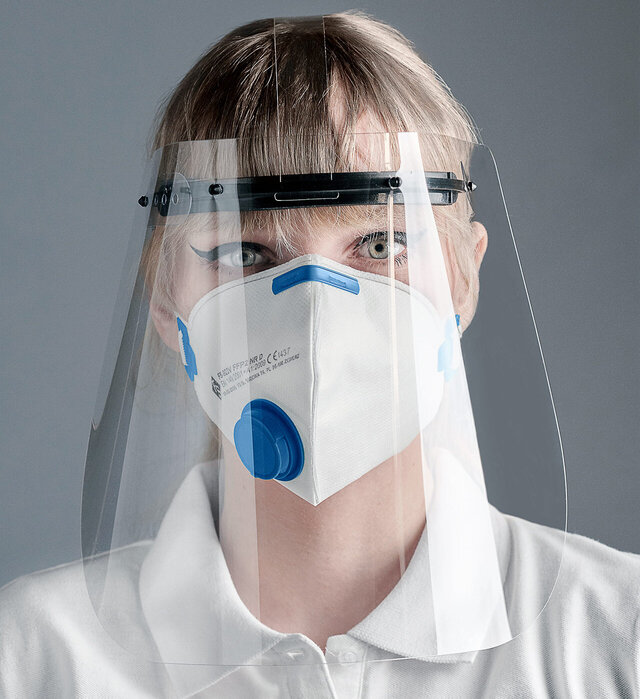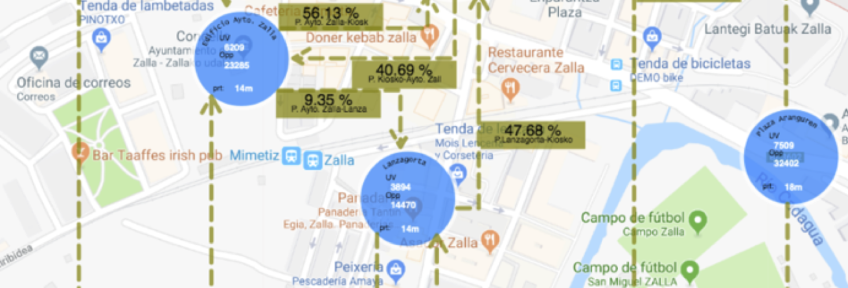Innovative response
Unique approach capable to get MASS (million people) and LEGAL (GDPR) knowledge of the flows and mobility of the population of any city, for a control of confinement and a correct de-escalation process. It is allowed to know in real time the capacity and mobility in the main public areas, transportation systems, buildings (high accurate in both outdoor or indoor scenarios), with the possibility of detecting real-time breaches of de-escalation and confinement rules at any moment. Simultaneously, making a commitment to local trade and supporting tourism of shopping by sending messages by proximity. Offering information and messages in real time that help to generate confidence in citizens and tourists. Thus, citizens and tourists receive proximity messages in the different areas of the city, with recommendations for both: rules to follow, and commercial / tourism offers according to their profile (inmune, infected, infected-network, citizen, tourist, neighbour, employee, ...)
Innovation is the use and placement of Seeketing nodes plug & play detectors that work according to RGPD, to be able to know in real time the flow, anonymous capacity of 80% population in certain spaces of interest, parks, squares, main streets and commercial and office areas, launching alerts of excess capacity to the authorities. Optionally nodes can be located at hospitals areas or triage centers of COVID19, in order to have anonymous (without opt-in) or registered (with opt-in) flows of 80% of infected/non infected people, to be able to know the flows and network of their contacts in public areas.
Simultaneously, use this system to guarantee citizens and tourists about the situation of the main public and commercial spaces, encouraging the use of local commerce and sending proposals to tourists visiting each area. This system has already been used in several municipalities in Spain and other countries, to support local trade and incentive tourism of shopping.
Specific issues addressed and anticipated impact
It is relevant to have MASS (million people) data and knowledge of the flows and mobility of millions of people at any city, for a control of confinement and a correct de-escalation.
It is crucial to have real time alerts about the capacity and mobility in the main public areas and official buildings, with the possibility of detecting real-time breaches of de-escalation and confinement rules at any moment, and simultaneously, making a commitment to local commerce and supporting shopping tourism by sending messages by proximity, and offering information and messages in real time that help to generate tranquility in citizens and tourists.
Using Seeketing system we have huge experience boosting tourism & local shops purchases. Citizens and tourists receive proximity messages in the each area of the city, with recommendations for both rules of use and proximity commercial / tourism offers according to their profile.
Organisations/institutions involved
Municipality, Hospitals, Police, Local commerce (optional)
Potential issues
Municipalities will deploy the system in public areas. Hospital will deploy the system in triage rooms. Town government and police will receive real time alerts. General public will register to receive alerts, information, offers, .... Municipalities will decide about alerts. Local commerce and other actos will feed the offers/information.
- National/Federal government
- Regional/State government
- Local government
Issues being addressed:
- Health and safety of responders
- Information and practice sharing (with public and/or internal)
- Resource management and mobilisation
- Governance responses
- Real-time data collection, sharing, and analysis
- Public service delivery under new circumstances
- Social effects of the crisis
Response contact:
Response tags:
Recovery-OrientedFiles:
Date Submitted:
29 April 2020


